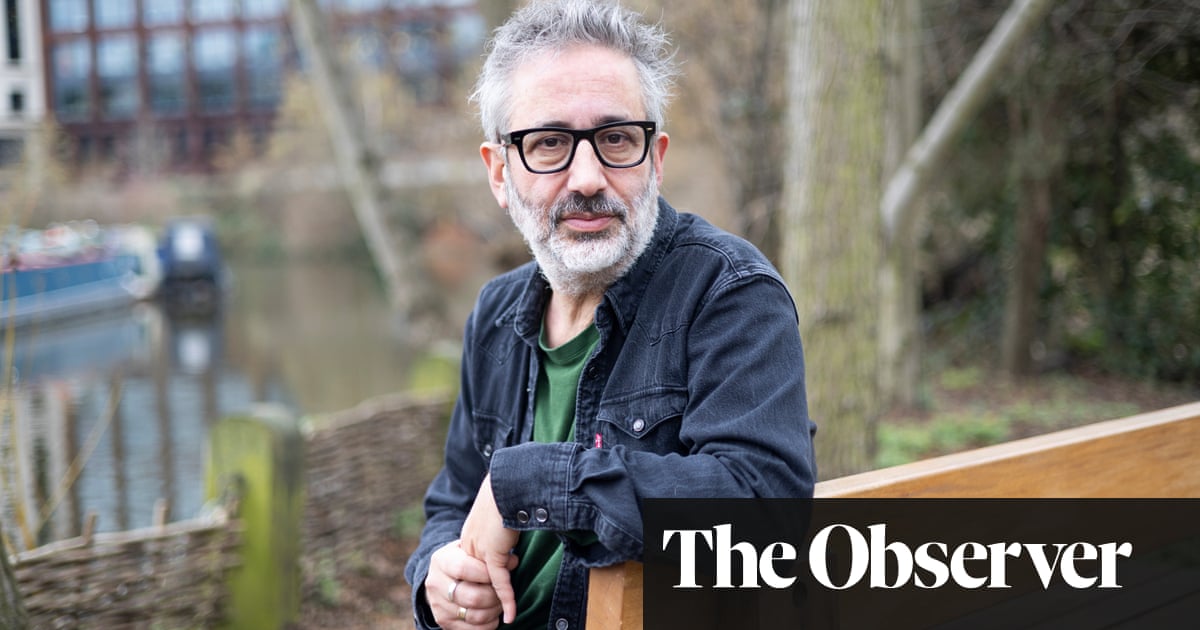
Look at me – I’m Jackson Pollock! Doing action painting in the Tate Turbine Hall!
I usually dread interactive art. I prefer to look at art silently, passively and, assuming it’s good enough, to absorb its nuances and meanings slowly. Why do some artists insist on making us doers rather than observers? Queuing with my family to enter the oval arena that Oscar Murillo has set up for us, the masses, to paint his latest work, I even started questioning the financial side. Murillo is a successful artist who will also open a doubtless lucrative show with Gagosian this summer. And he expects people, especially children, to paint his latest hit for free? Seeing his own fussy works on display in Tate’s Tanks, I suppose he needs all the help he can get.
At this point I was not planning to give Murillo my painterly fluids. Yet by the time we got to the reception point where staff tell you the “rules”, I couldn’t resist taking one of the long brushes arrayed in plastic trays, feeling its heft, length and soft hairs. Before me expanded a vast forum of canvas, with paint-covered trolleys standing at regular intervals where people of all ages – but with a large cohort of the very young and their parents – were busy adding whatever they felt like to a giant communally-created immersive painting.
The installation is inspired by Monet’s Nymphéas (Water Lilies). The great impressionist repeatedly depicted the garden he designed at his house in Giverny, lingering over the giant pads, pink flowers and still, reflective water of his lily pond.
The most radical, abstract and dreamlike of his Water Lilies are in the Orangerie in Paris. The shape and size of Murillo’s installation recalls the two specially designed oval galleries where Monet hung them as a memorial to the dead of the first world war – a space for memory and reflection, resonating like music.
If you want to experience The Flooded Garden in that quiet contemplative spirit look down on it from the Turbine Hall bridge. From here, it’s a lovely oval of blue. The enthusiastically dabbed, smeared and pooled paint may not have the illusionistic depths of Monet, but it does have an aquatic cool that’s refreshing on a summer afternoon.
When you go inside the painting arena, however, it is less harmonious. All around you are graffitied names, cartoonish creatures, flowers, clouds. Though one person had painted a luscious wave of abstract blue in the style of the late Howard Hodgkin.
I’ve always wanted to see big, sublime paintings in the Tate Turbine Hall. Ever since I had a hard hat tour before it opened, I dreamt of seeing Pollocks, Rothkos, Rileys and Twomblys on these vast grey industrial walls. But they say the Turbine Hall isn’t safe enough. Now, though, I’ve got the chance to create the modern painting it deserves.
Is it just summer fun? As I sink the brush in a mound of thick, gooey blue paint that slimes and slides as I stir and dip, it feels more real than that. More primal. Here with the false wall in front of you, in the Turbine Hall’s vast cavern, we’re connecting with the artists who made handprints and dots and portraits of animals in caves 30,000 years ago. Like the stone age artists we’ve just got to make our mark, however simple. It is tempting to stick your hand in the paint and make your impression that way.
Instead I start with some dots, mere specks of blue in the great cloud of colour. Then I try painting actual water lilies but they are unrecognisable so I turn them into eyes. Making a mark worthy of the canvas is not easy. The sheer size of this oval surface and the giant gallery looming over it makes your own efforts look tiny. Is that what Murillo wants us to see, that we’re just microscopic elements in a collective creative cloud?
But a memory is calling. “I reject the easel painting,” says the American voice, cigarette in mouth as he paces around a horizontal canvas, flicking paint. “The modern painting must be on a mural scale. It must be an action painting”.
I put the brush into the paint again and roll it about until I’ve got a top-heavy dollop. I stand back from the canvas, and raise the brush. With one strong flick I send the blue flying through space to land in a curly streak on the surface. Chance and physics have created something much more alive than anything I could have consciously shaped. And to scale with the place.
Let’s make this wild! This time I take a run up. I dash forward, flick the brush to arc a long blue line through space.
Then a Tate team member intervenes. Please can I stop doing that? The children might copy me. But I was just trying to imitate Jackson Pollock, I try to explain.
The Flooded Garden is irresistible. It taps into a euphoric urge in us all – anyway it did in me. Paint is energy, it is life. Every kid knows that. Now I remember it, too.
Oscar Murillo: The Flooded Garden is at Tate Modern, London, until 26 August












